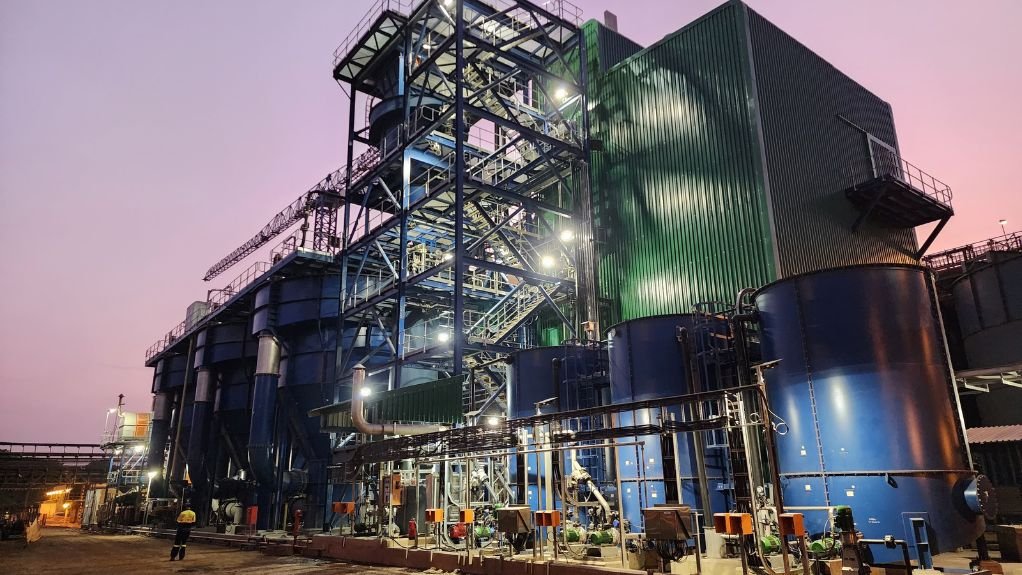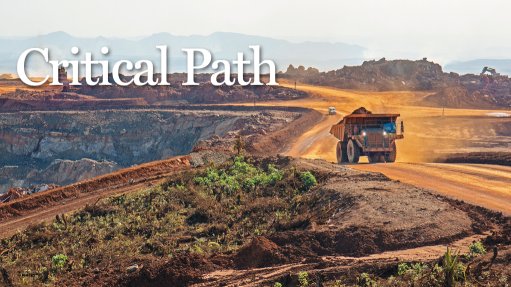Mining sector must embrace ethical tech shift


RESPONSIBLE INNOVATION Many South African original-equipment manufacturers are developing and testing AI-powered tools for real-time monitoring, predictive maintenance and improved environmental performance
The mining sector is at a “critical turning point”, as rapid advances in digital and automation technologies, particularly AI, redefine how mines operate and compete, says mining equipment manufacturing cluster Mining Equipment Manufacturers of South Africa (Memsa) and South African Mineral Processing Equipment Cluster (Sampec) marketing and communications officer Sue Breckenridge.
“AI can help create safer, more productive operations, but we need to make sure it also supports local development and job transformation. With the right partnerships and local innovation, South Africa can lead the way.”
The yearly Memsa Mind Shift Conference – to be held later this month, under the theme Mining the Future – will explore how AI and other digital technologies are reshaping South Africa’s mining sector and are helping mines operate more efficiently, improving worker safety and supporting global competitiveness.
The conference is not only about showcasing innovation but also ensuring that the shift to smarter mining includes the people and communities most affected by it.
Many local original-equipment manufacturers (OEMs) are developing and testing AI-powered tools for real-time monitoring, predictive maintenance and improved environmental performance. These include technologies such as autonomous vehicles, proximity detection systems and smart drilling rigs, which are designed with local mining conditions in mind, says Breckenridge.
Several of these innovations have emerged through partnerships among OEMs, mining companies and research institutions, and have been recognised at the Memsa Innovation for Mining Awards.
These collaborations are central to ensuring that local technologies are not only progressive but also relevant, practical and aligned with South Africa’s industrial and economic goals, she adds.
There are practical examples of AI being applied in local mining, including autonomous drilling rigs from equipment manufacturer Nkangala Mining Equipment, and a cyanide-removal process from engineering, procurement and construction management company AZMET Technology & Projects. These technologies are improving safety, reducing waste and allowing for new types of work in cleaner, more automated mining environments.
However, Breckenridge notes that while the technical capability is advancing, the “social side” of AI adoption remains more complex: “There are understandable concerns about how automation might affect jobs in such a historically labour-intensive sector. That’s why it’s critical to involve workers, unions, and communities in this transition.”
Rather than replacing workers, she says the clusters advocate that AI be deployed to help shift job roles, thereby creating demand for system operators, data analysts, robotics technicians and remote monitoring specialists.
These new positions often require different skills, but offer greater safety and long-term career potential, adds Breckenridge.
In this regard, Memsa is working closely with various partners to support digital skills development and promote responsible innovation that includes local suppliers, manufacturers and training providers.
This approach is also tied to broader localisation efforts, where South African-made technologies are prioritised over imported solutions that may not be suited to local needs.
Therefore, designing ethical and inclusive technology is required to ensure that the mining sector evolves in a way that is sustainable and fair, she adds.
“Ethical technology is helping us rewrite the story of South African mining. We’re seeing companies restore land, reuse water and even turn waste dumps into safe community spaces. Young people from rural areas are being trained to run AI systems. That’s what a just transition looks like.”
Responsible innovation is not only about technical excellence, it is rather about designing equipment that is safe, efficient and which supports the growth of local industry. It also means engaging directly with mining-affected communities to understand and manage the wider social and environmental impacts of digital transformation.
Further, she adds that government policy is starting to reflect this approach, with frameworks such as the Presidential Just Transition Framework, and through the support of the departments of Science, Technology and Innovation, and Trade, Industry and Competition, which are encouraging locally developed, socially responsible technology.
Skills development will be a key focus and Memsa plans to work with partners, such as the Manufacturing, Engineering and Related Services Sector Education and Training Authority and the Mandela Mining Precinct, to align new technologies with updated training programmes and curricula.
“The workforce of the future needs digital, mechanical and data skills. We’re seeing roles shift, and fitters now need to understand sensors and diagnostics, not just spanners.”
Collaboration between clusters – such as Memsa, Sampec, skills authorities, technical and vocational education and training colleges, as well as research organisations – is important to ensure that the mining sector can draw from the right skills pipeline to support ethical, inclusive innovation in the years ahead, she adds.
“The change is already happening. Our job now is to make sure it benefits everyone,” concludes Breckenridge.
Article Enquiry
Email Article
Save Article
Feedback
To advertise email advertising@creamermedia.co.za or click here
Announcements
What's On
Subscribe to improve your user experience...
Option 1 (equivalent of R125 a month):
Receive a weekly copy of Creamer Media's Engineering News & Mining Weekly magazine
(print copy for those in South Africa and e-magazine for those outside of South Africa)
Receive daily email newsletters
Access to full search results
Access archive of magazine back copies
Access to Projects in Progress
Access to ONE Research Report of your choice in PDF format
Option 2 (equivalent of R375 a month):
All benefits from Option 1
PLUS
Access to Creamer Media's Research Channel Africa for ALL Research Reports, in PDF format, on various industrial and mining sectors
including Electricity; Water; Energy Transition; Hydrogen; Roads, Rail and Ports; Coal; Gold; Platinum; Battery Metals; etc.
Already a subscriber?
Forgotten your password?
Receive weekly copy of Creamer Media's Engineering News & Mining Weekly magazine (print copy for those in South Africa and e-magazine for those outside of South Africa)
➕
Recieve daily email newsletters
➕
Access to full search results
➕
Access archive of magazine back copies
➕
Access to Projects in Progress
➕
Access to ONE Research Report of your choice in PDF format
RESEARCH CHANNEL AFRICA
R4500 (equivalent of R375 a month)
SUBSCRIBEAll benefits from Option 1
➕
Access to Creamer Media's Research Channel Africa for ALL Research Reports on various industrial and mining sectors, in PDF format, including on:
Electricity
➕
Water
➕
Energy Transition
➕
Hydrogen
➕
Roads, Rail and Ports
➕
Coal
➕
Gold
➕
Platinum
➕
Battery Metals
➕
etc.
Receive all benefits from Option 1 or Option 2 delivered to numerous people at your company
➕
Multiple User names and Passwords for simultaneous log-ins
➕
Intranet integration access to all in your organisation



















